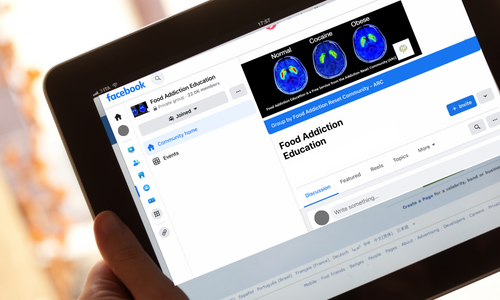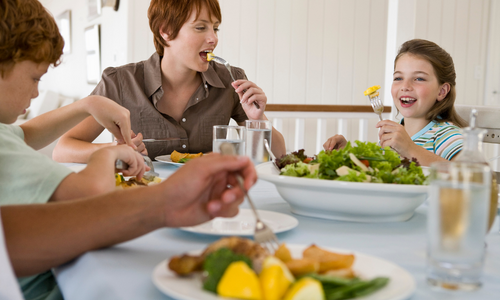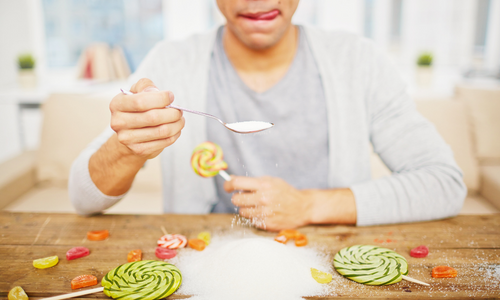New Answers To 6 Burning Questions About Emotional Eating | Part 1 of 2

Issue No. 29 | Brought to you by the Addiction Reset Community – ARC
Unlocking the secrets of processed food addiction and guiding you to find freedom from food and weight obsession.

Over the last seven years of engaging with recovering food addicts around the world on our Food Addiction Education Facebook group, 6 important questions have emerged regarding ‘emotional eating’.

The 6 most commonly asked questions in relation to ‘emotional eating’ are:
- Is emotional eating an issue in the absence of processed food?
- Why is it specifically food that I have chosen to deal with my emotions?
- How can I stop feeling like a failure?
- How do you resolve emotional eating?
- How can I stop emotional eating permanently?
The old ideas about emotional eating have been disproven by research. In researching and writing the textbook Processed Food Addiction: Foundations, Assessment and Management, Dr Joan Ifland looked at almost 8000 studies. The findings indicate that, for millions of people, emotional eating is caused by addiction to processed food.
Over the next 2 Issues of this weekly newsletter, we will share new answers to these six questions. Here are the first three:
Question 1: What is emotional eating?
We used to think that emotional eating is a response to strong stressful emotions such as depression, loneliness, fear or anxiety.
Now we know that emotional eating is the result of the close relationship between the stress pathway in the brain and the craving pathway.
Processed foods stimulate the craving pathways which then activate the stress pathway. In turn, the stress pathway aggravates the craving pathway once again. This cycle of stress and cravings may easily be misconstrued to be “emotional eating”.
Emotional eating is really the stress pathway triggering the craving pathway in the brain. It can be likened to an allergic reaction. It’s a ‘mechanical’ process in the brain that has little to do with childhood issues, trauma or self-sabotage.

Question 2: Is emotional eating an issue in the absence of processed foods?
Research shows that ‘emotional eating’ can still be activated in the absence of processed foods. This is due to associated cues or triggers that can stimulate emotional eating.
For example, the simple act of sitting down at the same table using plates and cutlery that were used to eat processed food, can serve as a reminder of those processed foods and cause cravings. Times of the day, anniversaries, or places you visit, may trigger an association with eating processed foods. These association triggers are everywhere and can trigger cravings which may continue to occur even when the processed food has been eliminated from your diet.
Associations between triggers and emotional eating can persist for a lifetime. Neurons in the brain may be permanently programmed to associate triggers with eating. But the secret to regaining control is to create and maintain new neural associations that will trigger calming responses, rather than eating. The recovery process requires learning and practice over time, just like learning and maintaining any other new skill.

Question 3: Why is it specifically food that I’ve chosen to deal with my emotions?
Processed foods are highly addictive and they are deliberately made that way by the industries that profit from their consumption. Research shows sugar to be more addictive than cocaine and the natural morphine in gluten and dairy can be concentrated to become more addictive. These are just some of the addictive ingredients commonly used in processed foods.
Food addiction is not “chosen” but it is taught to us by the food industry that formulates these foods in a specific way to ensure that they are highly palatable and cannot be eaten in moderation by most people. Their addiction business model also targets young children, including infants. Small children may also learn to use sugary processed food by mimicking their parents and the social circles around them.
Processed food is the drug of “choice” for many because it's cheap, available everywhere and always within reach, heavily advertised, socially-pushed, constantly stimulated and incredibly addictive.


Within the Addiction Reset Community (ARC) our members and their journeys are important to us. We find their stories inspiring and hopeful for everybody in health recovery.
“In other programs, I felt like I was losing my mind. Getting rid of processed foods feels like being let out of prison. I’d been travelling in small circles, but now I am free. Detox is not harder than one day in the active disease. During withdrawal, you only have a few more days. In active addiction, you never know when it will stop. It won’t last as long as all those years of insanity. I welcome withdrawal. Associating with other groups set me up for relapse to allergy-free processed foods. Now I feel like I’m home in the ARC.”

Many people reach out to Joan asking for advice and assistance on how they can begin their recovery journey.
Dear Joan
I have always been very hard on myself and judge myself harshly. I have felt awkward in the company for as long as I can remember. I grew up in a home where we ate processed food every day. I was curious if there was any link between the processed food and my self-esteem.
Joan responds:
Scientific studies show that processed foods are associated with low self-esteem. Processed foods 'downregulate' the parts of the brain that make us feel good. We stop feeling good about anything, including ourselves. The physical, emotional, mental and behavioral effects of processed food contribute significantly to our sense of self-value.
DISCLAIMER:
Dr Joan Ifland (PhD) is a global expert on the subject of processed food addiction and is not a medical doctor. Information and response shared in this Newsletter are not intended for, and should not be construed as medical advice.

Do you have a question? Reach out to us with your questions about food addiction and recovery at gethelp@foodaddictionreset.com
Are you showing signs of Processed Food Addiction? Take this self-quiz to find out now!
Recent copies of Dr Joan Ifland's Blog:
Issue 01 | Issue 02 | Issue 03 | Issue 04 | Issue 05 | Issue 06 | Issue 07 | Issue 08 | Issue 09 | Issue 10 | Issue 11 | Issue 12 | Issue 13 | Issue 14 | Issue 15 | Issue 16 | Issue 17 | Issue 18 | Issue 19 | Issue 20 | Issue 21 | Issue 22 | Issue 23 | Issue 24 | Issue 25 | Issue 26 | Issue 27 | Issue 28

